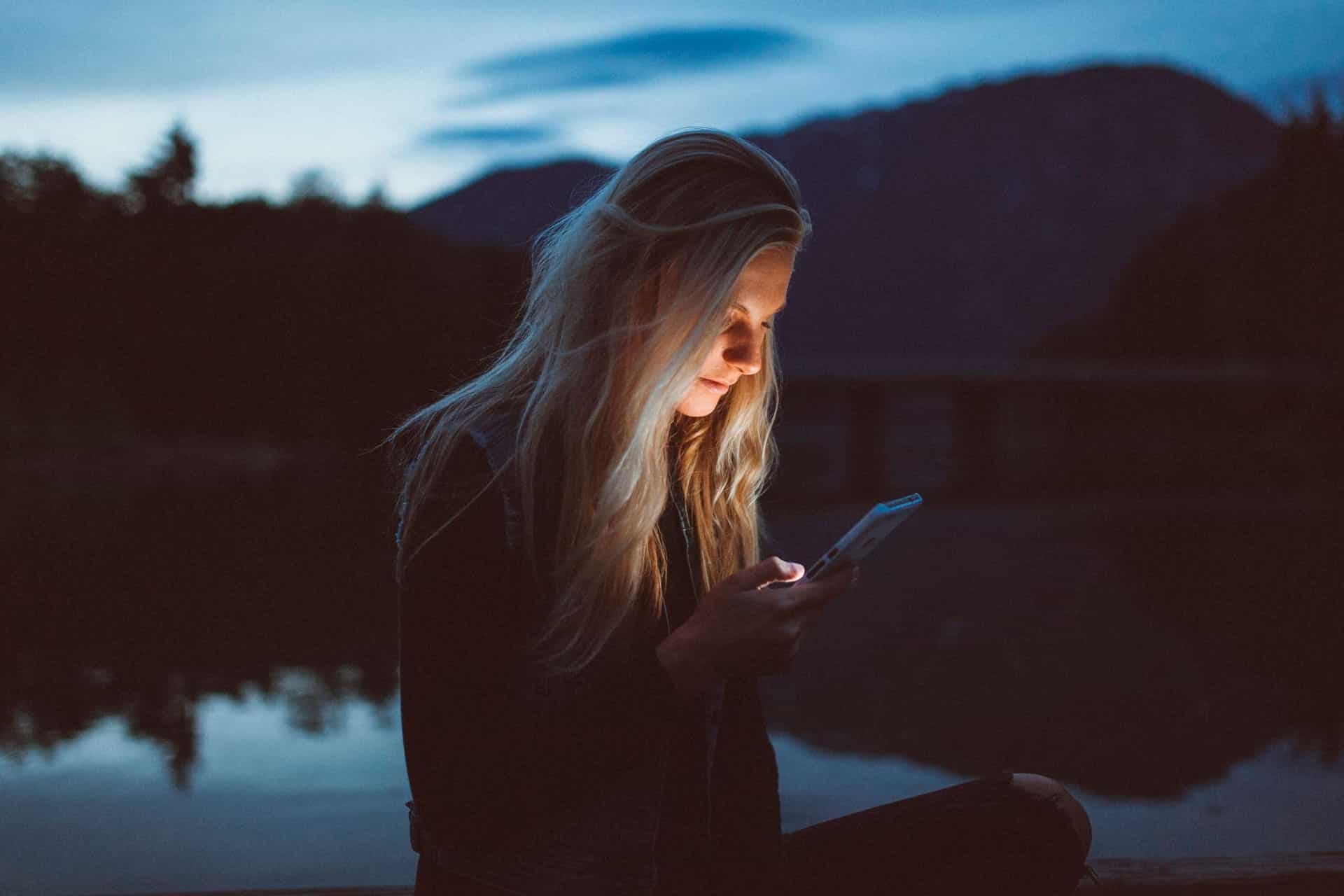
Technology connects us with others, furthers our learning, and brings a smile to our faces on a regular basis. However, while our screens can brighten our lives, studies have shown that the blue light they emit can be harmful. Beyond affecting our sleeping schedules, blue light from our mobiles, tablets, and computers has shown to speed up the signs of ageing. Much like exposing your naked skin to the sun, this light can have long term effects, if left unmanaged. Read on to discover the effects that blue light can have and how you can naturally protect your skin.
On the light spectrum, the sun’s UVA and UVB rays fall on the wavelength of about 280-400 nm (nanometers). Next to UV rays on the spectrum is blue light, which falls between 380-500 nm. Although we can’t see these rays, most of our electronic devices have them, meaning we are exposed to them all the time. Whether that’s watching Netflix, reading the news on your tablet, or watching YouTube videos on your phone, blue light is always there. Also, as this type of light regularly comes in close contact with our skin, it gets much closer than UV rays can.
Generally speaking, people understand that too much sun exposure can be harmful. However, the artificial light we’re exposed to in our homes at night can also cause damage. Studies have shown there is a link between blue light and oxidative stress. Over time, this blue light can cause photo-ageing, leading to wrinkles, fine lines, pigmentation, weakening of the skin’s surface, as well as damage to the human eyes. Furthermore, this light has also shown to interrupt our circadian rhythm, which can lead to long-term damage in our skin cells.
Here are a few simple preventative measures for your skin and eye health.
If you’re not sure where to start, here are some natural extracts which are known for their antioxidant properties.
These are some of the many great antioxidants in skincare products, which can help protect against blue light damage. If you would like to learn how to make your own blue light blocking skincare products, please sign up for the WapoBeauty’s Complete Facial Skincare Online Course.
It’s vital to keep adapting our beauty routines to protect our skin from external factors, such as blue light. Using these preventative measures will help you protect your skin and eye health. If you are looking to learn more about natural skincare or craft yours at home, check out WapoBeauty’s Traditional Soapmaking eBook. Those searching for guided learning may want to learn more about WapoBeauty’s Complete Facial Skincare Online Course for Beginners and discover how to make professional, safe, and stable natural beauty products. Join the ranks of students who found this class valuable and rewarding!
Ashuni Pérez is an American writer based in Valencia, Spain. She has a passion for natural beauty and the environment. Ashuni loves to cycle and drink smoothies in the sun. Follow her on Instagram at @ashuuuuni.